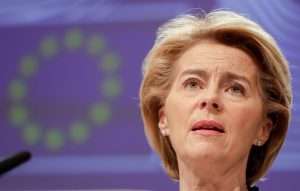As the second anniversary of Russia’s invasion of Ukraine approaches, Europe finds itself at a pivotal moment, grappling with the sustainability of its financial aid amidst mounting political and economic pressures. The commitment of over $100 billion in defense support to Ukraine by the European Union (EU) and its allies highlights the significant burden borne by these nations, amidst a conflict that shows no signs of abating.

In the United States, the political landscape is shifting, with potential implications for future aid to Ukraine. The difficulty faced by the Biden administration in securing continued support for Ukraine foreshadows the challenges that may arise should the political winds shift further, particularly with the potential re-election of Donald Trump, whose policies could dramatically alter the course of U.S. involvement in the conflict.
The financial and military aid to Ukraine, while substantial, raises questions about Europe’s long-term strategic capabilities and its reliance on American support. The possibility of utilizing frozen Russian assets to fund Ukraine’s defense is being explored as a means to alleviate some of the financial strain, although this approach carries its own set of legal and ethical implications.
The need for Europe to enhance its military independence and reduce reliance on the U.S. is becoming increasingly clear. Initiatives aimed at increasing European defense production capacity, such as the agreement to purchase missiles for Ukraine to be manufactured in Europe, indicate steps toward achieving greater autonomy in security matters.
As Europe faces these multifaceted challenges, the broader implications for its security architecture and position in global politics become apparent. The situation in Ukraine is not just a test of Europe’s resolve to support a neighbor and ally but also a reflection of its ability to navigate a complex international landscape and assert its strategic autonomy.
The coming year will be critical in determining the trajectory of Europe’s support for Ukraine, the cohesion of the EU and NATO, and the broader implications for European security and global stability. The decisions made now will resonate well beyond the immediate context of the Ukraine conflict, shaping the future of European defense, the transatlantic alliance, and the international order.
(Associated Medias) – Tutti i diritti sono riservati

